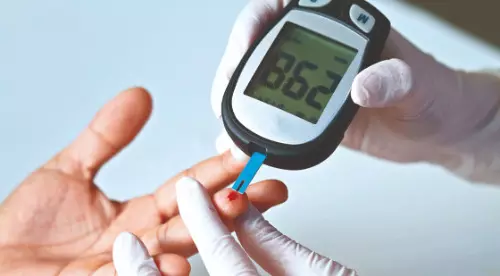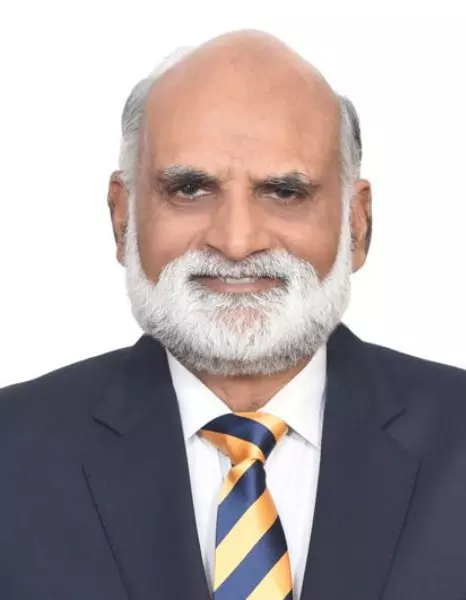Living Mindfully, Healing Naturally
As India faces a mounting diabetes crisis, the call for mindful living, balanced habits and preventive health systems grows louder — merging ancient wisdom with modern medicine

Those who are temperate in eating and recreation, balanced in work, and regulated in sleep, can reduce all sorrows by practising Yog
— Bhagavad Gita
These timeless words capture the very essence of health, which is balance, moderation and awareness. As the world marks World Diabetes Day on November 14, this ancient wisdom resonates with renewed urgency. Diabetes, after all, is a disease that thrives on imbalance in our diets and daily lifestyles. Its prevention, therefore, lies not merely in medicine but in mindful living.
For millions, diabetes is more than a condition; it is a daily struggle that shapes how one eats, moves, and lives. What began as a quiet concern has now grown into one of the most formidable global health crises of the 21st century. The International Diabetes Federation (IDF) estimates that nearly 588 million people worldwide were living with diabetes in 2024, a number projected to surge to 852 million by 2050. Behind these figures lies a profound human story of individuals, families, and societies burdened by a disease that is, in large part, preventable.
India stands at the epicentre of this challenge. With nearly 89.8 million adults living with diabetes in 2024, a figure expected to reach 156.7 million by 2050. Moreover, we have the world’s second-largest diabetic population after China. One in every seven adults with diabetes globally is an Indian. This statistic is not just a number; it is a call for introspection, a reminder that the epidemic is not only medical but also deeply social, economic, and behavioural in nature.
What makes the situation even more concerning is its silent nature. Nearly 43% of Indian adults living with diabetes remain undiagnosed —close to 38.6 million individuals who unknowingly carry a disease that silently damages the heart, kidneys, eyes, and nerves. The absence of early symptoms often delays diagnosis until complications set in. As a result, households are left struggling with mounting medical costs, often consuming a significant portion of family income.
Diabetes occurs primarily in two forms – Type 1 and Type 2. Type 1 usually develops early in life when the pancreas produces little or no insulin, requiring lifelong management. Type 2, however, is the far more common form, arising when the body fails to use insulin effectively. According to the World Health Organisation, nearly 77 million adults in India, a significant population, are living with Type 2 diabetes. While the scale of these numbers reflects a growing public health concern, it also provides us with an opportunity. Unlike Type 1, Type 2 diabetes is largely preventable. Strengthening prevention, therefore, will be India’s most effective path to reducing the future burden of diabetes and empowering millions to lead healthier, longer lives.
While prevention is key, we must look deeper into the ways our modern lifestyles have changed and how they fuel this epidemic. Rapid urbanisation, reduced physical activity, irregular sleep, stress, and unhealthy diets have altered the way our bodies function. Over the last two decades, a tectonic shift has taken place in the way families eat, move, and live. High-calorie diets, screen-heavy routines, and declining outdoor activity have widened waistlines across generations, even among children. The growing incidence of childhood obesity and early-onset diabetes has prompted experts to warn of a looming “Diabesity” crisis, which the World Health Organisation has aptly called an “exploding nightmare.”
Yet, amidst this grim reality, lies an encouraging truth that diabetes can be delayed, controlled, and even prevented through conscious choices. Here, it is worth remembering that prevention, not cure, has always been the cornerstone of India’s civilisational approach to health. Ancient Indian medical thought, particularly from texts such as the Charaka Samhita and Sushruta Samhita, viewed health as a state of equilibrium, a balance between diet, lifestyle and mental wellbeing. The emphasis was not on treating disease, but on averting it.
The timeless philosophy remains remarkably relevant today. Practices such as yoga, surya namaskar, and pranayama enhance insulin sensitivity, improve metabolism, reduce stress, and bring mental calm. A diet rich in whole grains, pulses, fruits, vegetables, millets, and low-fat dairy, along with proper hydration, supports better glucose control. Meanwhile, Ayurveda’s focus on dinacharya (daily routine) and ritucharya (seasonal adaptation) provides a preventive framework for sustainable health.
Prevention begins with awareness. Knowing the risks, recognising the symptoms, and embracing small daily changes. Regular physical activity, adequate sleep, and mindfulness practices help regulate not only blood sugar levels but also overall vitality. Equally important is mental well-being. Stress, anxiety, and irregular schedules can trigger hormonal imbalances that fuel lifestyle diseases. Yoga, meditation, and time spent in nature restore inner stability, reinforcing the age-old Indian belief that health is not merely the absence of disease, but a state of holistic balance.
At the community level, prevention requires an ecosystem approach. Alongside large-scale screening drives, awareness on sugar levels and nutrition literacy in schools, accessible healthcare and affordable medicines, it also calls for integrating India’s preventive health heritage and integrating it meaningfully into modern public health policies.
In this context, World Diabetes Day serves as a reminder of the power of awareness and prevention. Established by the International Diabetes Federation and the World Health Organisation in 1991, it is observed every year on November 14 – the birthday of Sir Frederick Banting, who co-discovered insulin. The campaigns organised on World Diabetes Day are denoted by the Blue Circle, a global symbol of diabetes awareness, which denotes the coalition of global diabetes communities in combating the growing cases of this silent killer.
This year’s theme, “Diabetes Across Life Stages,” reflects the reality that diabetes knows no age or boundary. It is a lifelong condition that can affect anyone, from a child to an elderly person, and its care must evolve across every stage of life. The Illness to Wellness Foundation proudly endorses this theme, reaffirming its commitment to advancing awareness, prevention, and comprehensive management of diabetes across communities. Additionally, by supporting this theme, the Foundation underscores that diabetes care must adapt to every stage of life and extend beyond medical treatment to embrace holistic well-being.
This World Diabetes Day, I urge every Indian — be it families, communities, healthcare professionals, or policymakers — to come together to strengthen awareness, promote preventive measures, and improve diabetes care and management across the country. I firmly believe that proactive government initiatives, empowered communities, and dedicated institutional support can collectively create meaningful impact in addressing the rising burden of this disease and improving the nation’s overall health outcomes.
At the Illness to Wellness Foundation, we reaffirm our unwavering commitment to supporting government efforts, expanding public awareness, and working hand in hand with all stakeholders in this critical mission. Together, through sustained action and shared responsibility, we can build a healthier future and move closer to a diabetes-aware and diabetes-resilient India. I strongly believe that by combining the strength of science with the wisdom of our ancient traditions, India can show the world that prevention is not just possible, it is powerful. A mindful lifestyle, rooted in balance and awareness, is our best defence against diabetes and a path to wellness.
Views expressed are personal. The writer is the Chairperson, Advisory Council, Illness to Wellness Foundation



